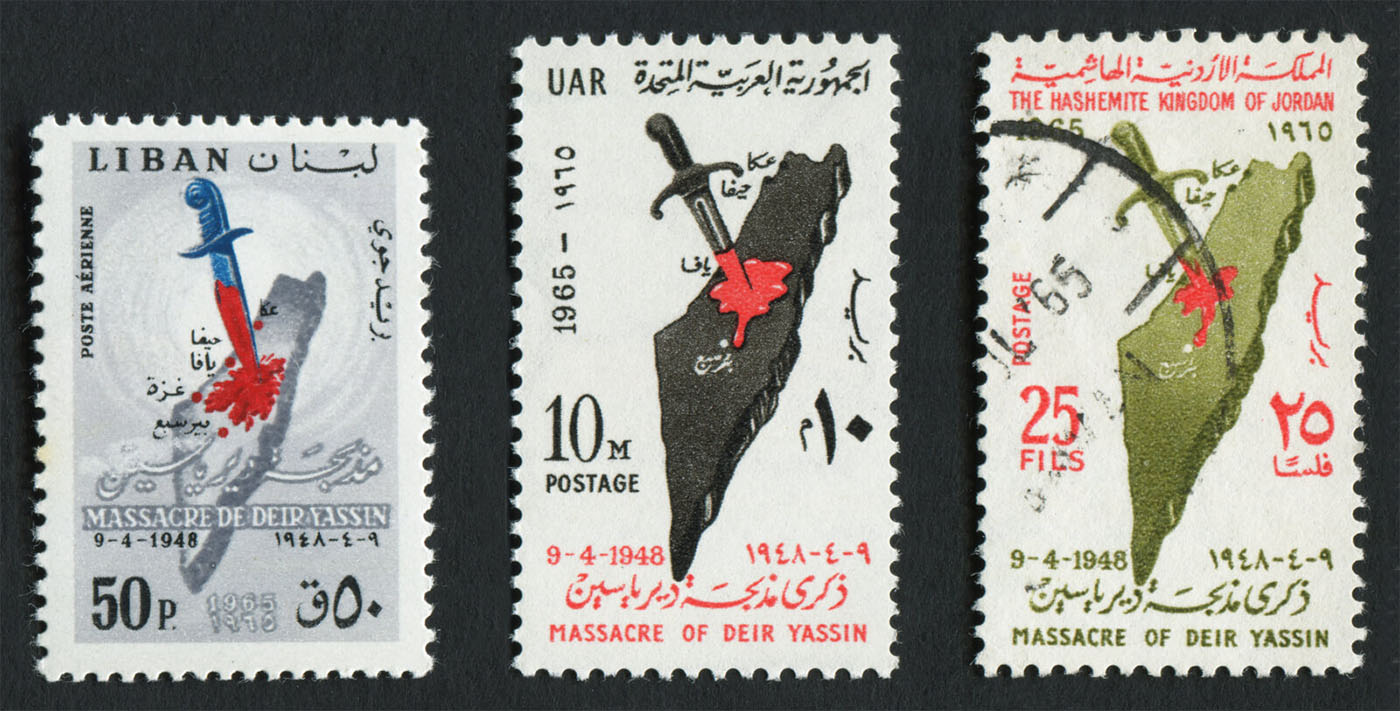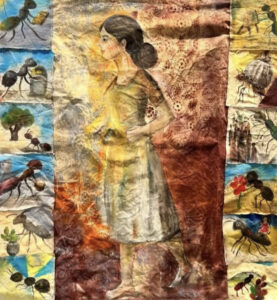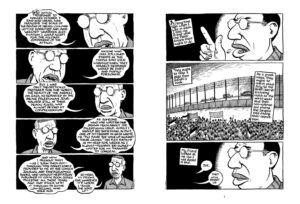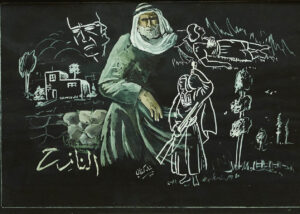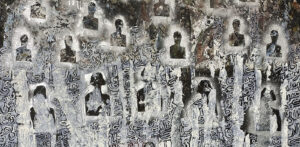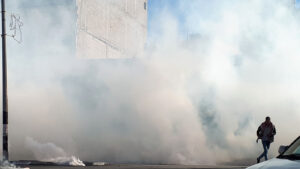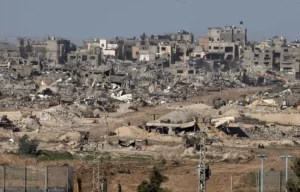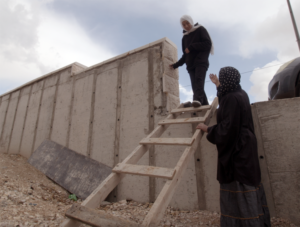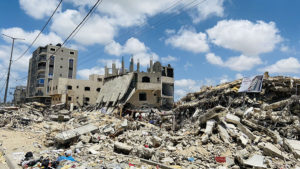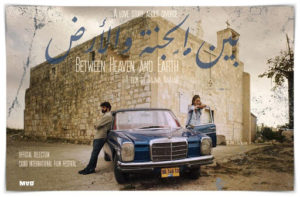As Gaza survives yet another humanitarian catastrophe, this novel’s emphasis on preserving and sharing Palestinian stories feels more vital than ever.
Yassini Girls, a novel by Shereen Malherbe
Beacon Books 2024
ISBN 9781915025944
Shereen Malherbe’s Yassini Girls is an important contribution to Palestinian literature, revisiting the harrowing events of the 1948 Deir Yassin massacre, one of the most infamous episodes of the Nakba. During this massacre, Zionist paramilitary groups, including the Irgun, killed over 100 Palestinian villagers near Jerusalem, an event that caused mass displacement and was part of a larger strategy of ethnic cleansing. This incident, like so many others in Palestinian history, serves as a reminder of the ongoing struggle for survival and justice.
Deir Yassin, which took place on the 9th of April, 1948, was not an isolated event but one of numerous massacres during this period. A Wikipedia entry reveals that the precise number is unknown:
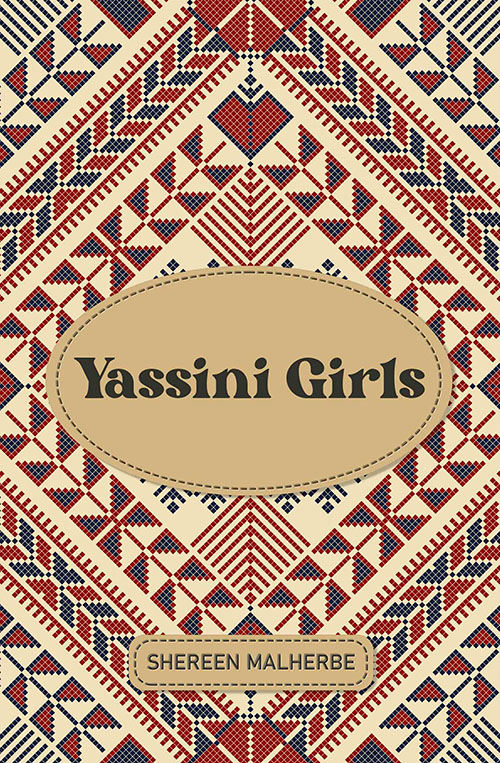
According to several historians, between 10 and 70 massacres occurred during the 1948 war. According to Benny Morris the Yishuv (or later Israeli) soldiers killed roughly 800 Arab civilians and prisoners of war in 24 massacres. Aryeh Yizthaki lists 10 major massacres with more than 50 victims each. Palestinian researcher Salman Abu-Sitta lists 33 massacres, half of them occurring during the civil war period. Saleh Abdel Jawad lists 68 villages where acts of indiscriminate killing of prisoners, and civilians took place, where no threat was posed to Yishuv or Israeli soldiers.*
Regardless of the number of massacres, word traveled fast, and terrorized Palestinians fled. Similar patterns of displacement and destruction are visible today in Gaza, where families who have endured generations of loss face continued violence and dispossession.
However, while Yassini Girls brings attention to this key moment in Palestinian history, the novel could have benefitted from a deeper exploration of the massacres surrounding Deir Yassin.
While Malherbe highlights the impact of Deir Yassin itself, the novel’s brisk pace leaves readers wanting more — more depth, more context, and a fuller picture of these atrocities within the larger narrative of ethnic cleansing.
In comparison, novels such as Elias Khoury’s Gate of the Sun or Ghassan Kanafani’s Men in the Sun offer more subjective portrayals of the Nakba’s human cost, immersing readers into the emotional and physical devastation of the displacement.
In Yassini Girls, Malherbe explores the consequences of the Deir Yassin massacre through the intertwined lives of two women: Fatima, who lived through the massacre, and Layla, her granddaughter, who grapples with its legacy. While Malherbe conveys the personal significance of the massacre for these characters, the novel’s pacing undermines its emotional impact. The story moves so quickly that key moments — such as Layla’s emotional visit to Deir Yassin — feel rushed and underdeveloped.
In comparison, other Palestinian novels that deal with similar themes, such as Mornings in Jenin by Susan Abulhawa, slow the narrative down at pivotal moments, allowing the reader to fully inhabit the characters’ grief, and anger. For example, Layla’s muted reaction to finding out about her family’s link to the massacre — describing her feelings as disappointment rather than anger — falls flat, missing an opportunity to deeply connect with readers who might expect a more emotional response to such a powerful moment of realization.
Yassini Girls stands out for its use of symbolism, particularly through its focus on stone and embroidery, which represent both the resilience of the Palestinian people and the richness of their cultural heritage. The Palestinian thobe, embroidered with intricate patterns, becomes a metaphor for the complexity of Palestinian identity and history. This attention to cultural symbolism is one of the novel’s strongest aspects, providing a thematic continuity that grounds the characters in their heritage.
However, while the novel succeeds in these symbolic moments, its writing style can sometimes feel more like a historical overview than an immersive narrative. Malherbe’s reliance on exposition — telling rather than showing — distracts from the emotional immediacy of the story. This contrasts with the works of writers like Mahmoud Darwish, whose poetic prose brings both the beauty and sorrow of Palestinian life. In Yassini Girls, the balance between historical detail and personal narrative could be fine-tuned.
It’s important to note that Yassini Girls is a deeply personal book for Shereen Malherbe. Rooted in her family’s history, the novel draws from the revelations she uncovered while filming the BBC documentary The Holy Land and Us: Our Untold Stories.
In interviews, Malherbe has emphasized the urgency of telling Palestinian stories, particularly in the face of rising Islamophobia and decades of dehumanizing media portrayals. “It is now more crucial than ever that Palestinian stories are read and understood,” Malherbe has said.
While Yassini Girls’s pacing and reliance on exposition may leave some readers unsatisfied, the novel’s thematic depth and its exploration of intergenerational trauma make it a valuable read. For those interested in Palestinian history and the enduring effects of the Nakba, Yassini Girls offers a personal, if imperfect, reflection on a legacy of loss and resilience.
As Gaza endures yet another humanitarian catastrophe, this novel’s emphasis on preserving and sharing Palestinian stories feels more vital than ever.
It is worth reading for its message, even if the delivery falls short.



